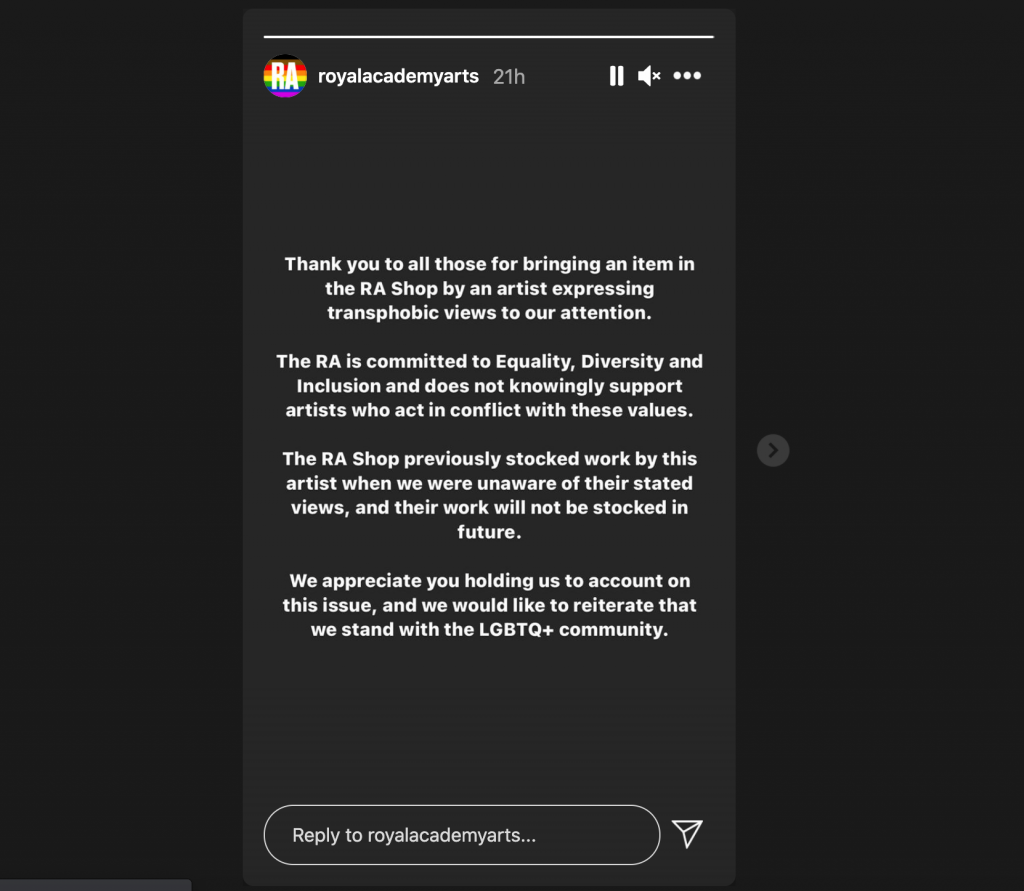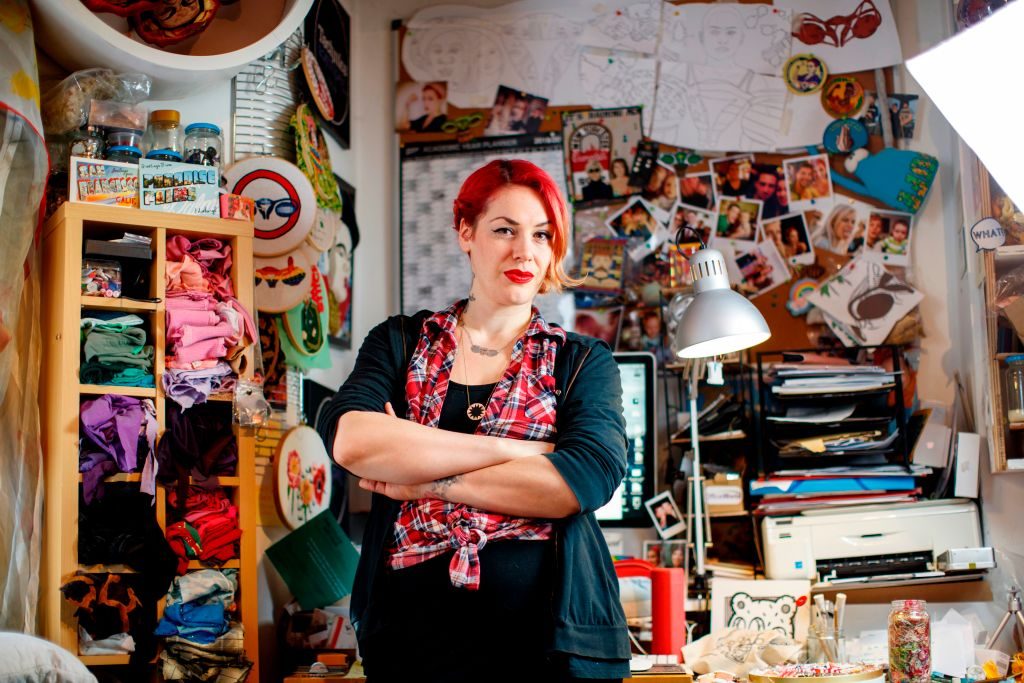London’s Royal Academy has pulled a work by artist Jess de Wahls from its online shop after online critics denounced the institution for giving a platform to the artist, who has openly expressed her frustrations with contemporary gender identity politics, during Pride month.
The institution was selling a floral iron-on embroidery patch made by the artist (similar versions are listed for £10 each). In a social media post on Wednesday, the museum said it had pulled the work from the store after a barrage of criticism on social media alerted the institution to de Wahls’s stated views, which some have described as transphobic.
The episode comes at a moment when museums—not to mention film, television, and other corners of culture—are facing calls to rethink if and how they promote the work of artists with divisive views. A similar debate was reignited in the literary world this week by an essay from author Chimamanda Ngozi Adichie, whose comments about gender in a BBC interview were criticized as transphobic. Some have described this reckoning as accountability culture; others have called it cancel culture.
“Thank you all for bringing this to our attention,” the Royal Academy wrote on Instagram. “The RA is committed to Equality, Diversity and Inclusion and does not knowingly support artists who act in conflict with these values.” It added that the shop was “unaware” of De Wahls’s views at the time it stocked her work, and that it “will not be stocked in future.”

The Royal Academy’s statement on their Instagram stories.
The RA continued: “We appreciate you holding us to account on this issue, and we would like to reiterate that we stand with the LGBTQ+ community.”
The institution did not identify de Wahls as the artist it referred to, but de Wahls has commented on the incident in her own social media feeds (and several people identify her in the comments of the RA’s feed as well).
In August 2019, de Wahls penned an op-ed for her website titled “Somewhere over the Rainbow, something went terribly wrong…“. In it, she outlined her views on gender identity politics, and specifically the potential ramifications she sees for cisgender women and girls if society recognizes trans women as women, and if children are allowed to transition. “Women and trans people are both marginalized groups within society, and we need to find solutions for both of those groups, without overriding existing rights of women,” she wrote.
Artnet News reached out to de Wahls for comment but did not hear back by press time, although she has reshared her essay on Twitter in response to the incident, which she has referenced as the result of “concerted social media campaign” against her.
In her essay, the London-based artist spoke about her background growing up in East Berlin and her own father’s gender non-conforming self-expression as some of the context for her beliefs, and expressed concern that gender politics have become “tribal” to the point that productive conversation is stifled.
A skim of some of the reactions to the news on the RA’s comments show responses in both camps. One user, Chris, wrote that the RA had “capitulated to an online mob” based on “misrepresentation of [the artist’s] perfectly reasonable views.” Another, Laura, wrote to the institution: “take down your performative pride flag logo if you’re going to promote work by an openly transphobic artist.”
The Royal Academy did not respond to questions from Artnet News by press time.







